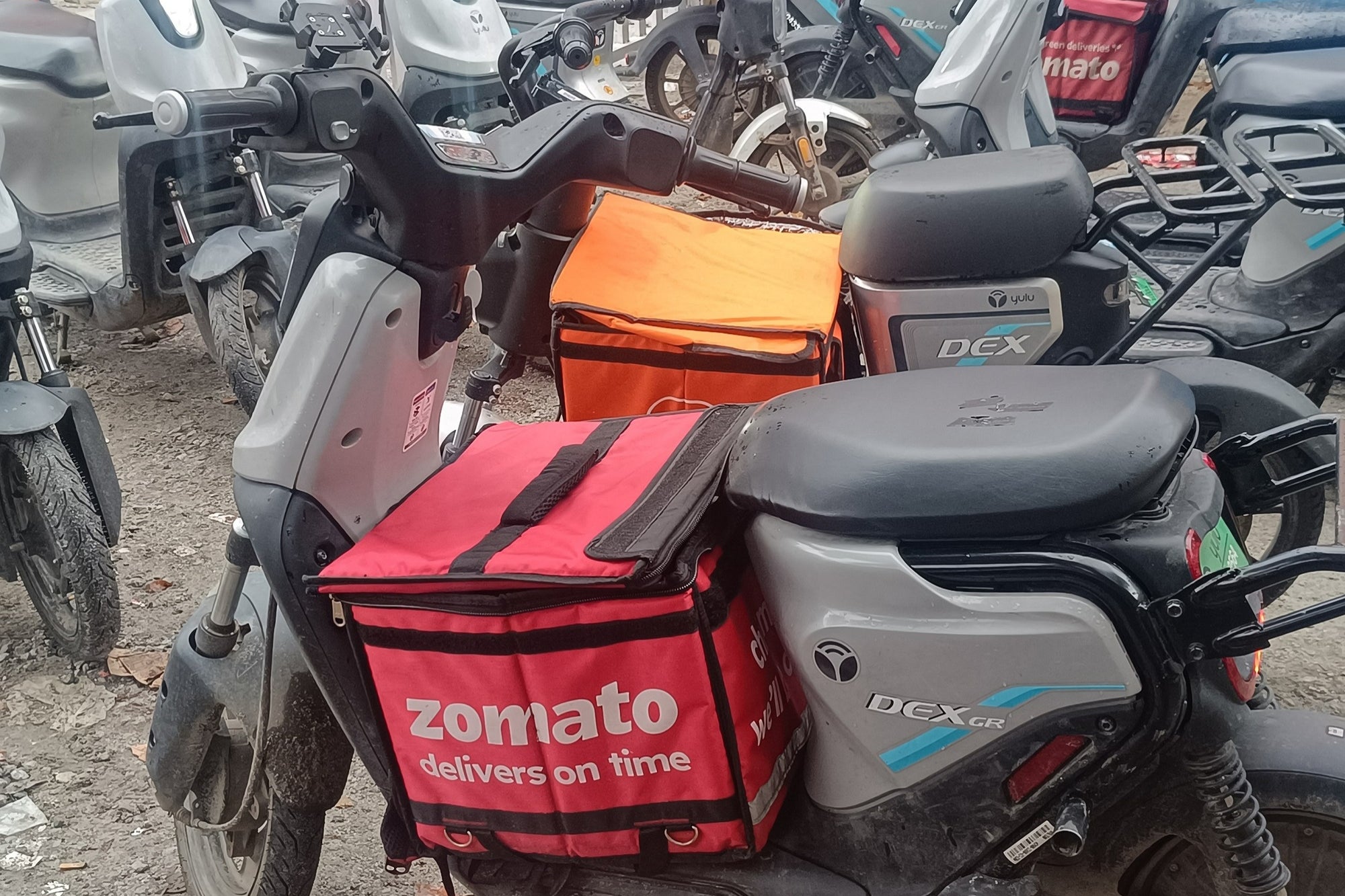Top Companies Underperform on Fair Labour Standards for Gig Workers: Report This year, Fairwork evaluated 11 platforms in India including Amazon Flex, bigbasket, BluSmart, Flipkart, Ola, Porter, Swiggy, Uber, Urban Company, Zepto and Zomato.
You're reading Entrepreneur India, an international franchise of Entrepreneur Media.

Gig workers are in the news after Zomato founder and CEO Deepinder Goyal said in a post on X (formerly Twitter) that he had posed as a delivery executive and was denied entry at a mall in Gurugram. He said that mall staff had asked him to take the staircase instead of an elevator.
Following this, Ambience Mall has said a separate pick-up point will be reserved for delivery agents, along with a "well-ventilated seating area and complimentary beverages".
Despite the rising influence of the gig economy, major disparities exist in the treatment of platform workers, with several companies drastically underperforming on fair labour standards, according to the Fairwork India Report 2024.
This year, Fairwork evaluated 11 platforms in India including Amazon Flex, bigbasket, BluSmart, Flipkart, Ola, Porter, Swiggy, Uber, Urban Company, Zepto and Zomato. The Fairwork India team is spearheaded by the Centre for Information Technology and Public Policy (CITAPP) at the International Institute of Information Technology Bangalore (IIITB), with partners at the University of Oxford.
The team assessed evidence against five Fairwork principles (Fair Pay, Fair Conditions, Fair Contracts, Fair Management, Fair Representation) through a combination of desk research and worker interviews conducted in Bengaluru, Chennai, Delhi, Kochi, Thiruvananthapuram, and, where possible, from evidence provided by the platforms. Each Fairwork principle is broken down into two points: a first point, and a second point that can only be awarded if the first point has been fulfilled. Every platform receives a score out of 10.
This year, no platform scored more than six out of the maximum of ten points, and none scored all the first points across the five principles.
Only bigbasket and Urban Company were awarded the first point under "Fair Pay" for instituting a minimum wage policy that guaranteed all their workers earn at least the hourly local minimum wage after factoring in work-related costs. No platform earned the second point under "Fair Pay", which requires platforms to commit to and ensure a local living wage after work-related costs or provide sufficient evidence that all workers earn at least this amount.
Amazon Flex, bigbasket, BluSmart, Swiggy, Urban Company, Zepto, and Zomato were awarded the first point under "Fair Conditions" for providing adequate safety equipment and periodic safety training to workers on their platforms. Only bigbasket, Swiggy, Urban Company, Zepto and Zomato were awarded the second point for providing workers with accident insurance coverage at no additional cost.
Six out of 11 platforms were awarded the first point for "Fair Contracts". bigbasket, BluSmart, Swiggy, Urban Company, Zepto, and Zomato were awarded this point for ensuring the accessibility and comprehensibility of their contracts, and for having protocols for the protection and management of worker data. bigbasket, BluSmart, Swiggy, Zepto, and Zomato, met the requirements for the second point under Fair Contracts by adopting a change notification clause in their contracts, reducing asymmetries in liability (such as by a provision to compensate workers for losses due to app malfunctions and outages), adopting a Code of Conduct for their subcontractors, and making the variables influencing pricing transparent where dynamic pricing is used.
The Fairwork India Report 2024 showed Flipkart, one of India's largest e-commerce platforms, performed even worse, scoring a mere 1 out of 10. The only point Flipkart earned was under "Fair Management", for providing workers with a basic channel to appeal disciplinary actions. However, this limited success was overshadowed by its failures in other areas. Flipkart did not meet the standards for fair pay, meaning workers are not guaranteed to earn at least the minimum wage after work-related costs. Additionally, Flipkart's contract terms were criticised for being unclear and inaccessible to workers.












